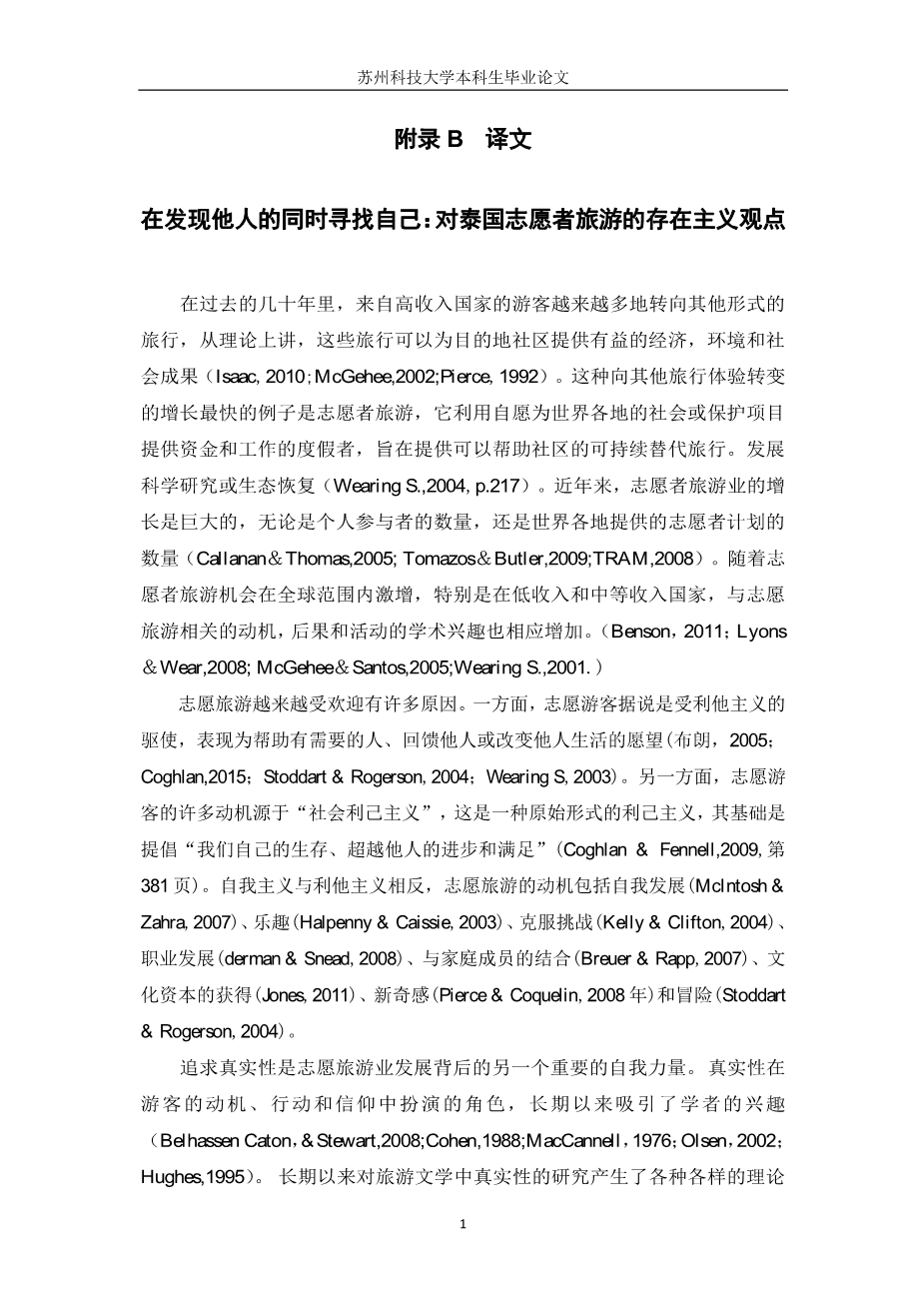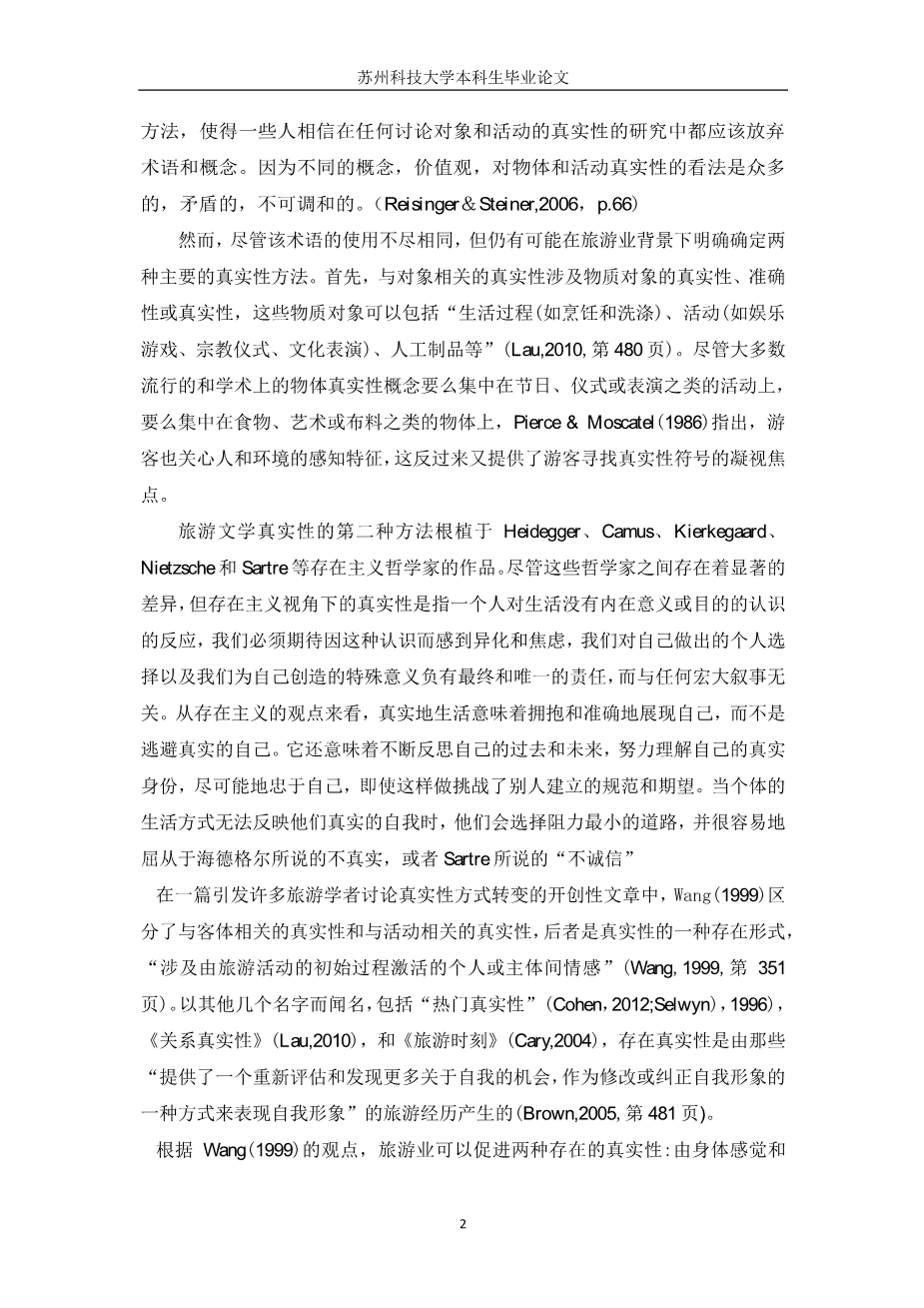For the past several decades, tourists from high-income countries have increasingly turned to alternative forms of travel that, in theory, deliver rewarding experiences and promise beneficial economic, environmental, and social outcomes for destination communities (Isaac, 2010; McGehee, 2002; Pearce, 1992). The fastest growing example of this shift towards alternative travel experiences is volunteer tourism, which ‘‘makes use of holiday-makers who volunteer to fund and work on social or conservation projects around the world and aims to provide sustainable alternative travel that can assist in community development, scientific research or ecological restoration” (Wearing, 2004, p. 217). The growth of volunteer tourism in recent years has been dramatic, both in terms of the number of individual participants, and the number of volunteer programs being offered around the world (Callanan amp; Thomas, 2005; Tomazos amp; Butler, 2009; TRAM, 2008). As volunteer tourism opportunities have proliferated globally, particularly in low- and middle-income countries, there has also been a corresponding expansion of scholarly interest in the motivations, consequences, and activities associated with volunteer tourism (Benson, 2011; Lyons amp; Wearing, 2008; McGehee amp; Santos, 2005; Wearing, 2001).
There are many reasons for the rising popularity of volunteer tourism. On the one hand, volunteer tourists are said to be motivated by altruism, as expressed by the desire to help people in need, give back, or make a difference in the lives of others (Brown, 2005; Coghlan, 2015; Stoddart amp; Rogerson, 2004; Wearing, 2003). On the other hand, many of the motivations ascribed to volunteer tourists stem from ‘social egoism,’ a primitive form of egoism based on the promotion of values such as ‘‘our own survival, advancement over others, and gratification (amongst others)” (Coghlan amp; Fennell, 2009, p. 381). Ego-istic, as opposed to altruistic, motivations that inform volunteer tourism include self-development (McIntosh amp; Zahra, 2007), fun (Halpenny amp; Caissie, 2003), overcoming a challenge (Galley amp; Clifton, 2004), career development (Söderman amp; Snead, 2008), bonding with family members (Bruyere amp; Rappe, 2007), the acquisition of cultural capital (Jones, 2011), novelty (Pearce amp; Coghlan, 2008), and adventure (Stoddart amp; Rogerson, 2004).
The pursuit of authenticity is another important egoistic force behind the growth of volunteer tourism. The role played by authenticity in the motivations, actions, and beliefs of tourists has long captured the interest of scholars (Belhassen, Caton, amp; Stewart, 2008; Cohen, 1988; MacCannell, 1976; Olsen, 2002; Hughes, 1995). The longstanding study of authenticity in the tourism literature has produced a wide variety of theoretical approaches, leading some to believe that the ‘‘the term and concept should be abandoned in any research that discusses the genuineness of objects and activities, because the different concepts, values, and perspectives on the authenticity of objects and activities are numerous, contradictory, and irreconcilable” (Reisinger amp; Steiner, 2006, p. 66).
It is possible, however, despite the heterogeneous use of the term, to clearly identify two overarching approaches to authenticity in the context of tourism. First, object-related authenticity relates to the genuineness, accuracy, or truthfulness of material objects that can include ‘‘life processes (e.g., cooking and washing), activities (e.g., recreational games, religious rituals, cultural performances), artifacts, and so on” (Lau, 2010, p. 480). Although most popular and academic notions of object authenticity focus either on activities such as festivals, rituals, or performances, or objects such as food, art, or cloth-ing, Pearce and Moscardo (1986) indicate that tourists also care about the perceived characteristics of people and settings, which in turn provide the focal points of a tourist gaze searching for symbols of authenticity.
The second approach to authenticity in the tourism literature is rooted in the work of existential philosophers such as Heidegger, Camus, Kierkegaard, Nietzsche, and Sartre. Although significant differences exist among these philosophers, authenticity from an existentialist perspective relates to a person’s response to the realization that life has no intrinsic mean-ing or purpose, that we must expect to feel alienation and anxiety as a result of this realization, and that we bear ultimate and sole responsibility for the individual choices that we make, as well as for the particular meanings that we create for our-selv
剩余内容已隐藏,支付完成后下载完整资料


英语译文共 7 页,剩余内容已隐藏,支付完成后下载完整资料
资料编号:[434362],资料为PDF文档或Word文档,PDF文档可免费转换为Word
您可能感兴趣的文章
- COVID-19时期的旅游业和可持续发展:以西班牙为例外文翻译资料
- 农民相对剥夺感对乡村旅游可持续发展的影响机制外文翻译资料
- 校园大学生的旅行行为——以亚洲某乡村大学为例外文翻译资料
- 内容旅游与地方社区响应:鹫宫的“幸运之星”和“协作动漫旅游”外文翻译资料
- 基于符号互动理论的遗产旅游资源开发与重塑——以良渚古城遗址为例外文翻译资料
- 在TikTok上映射互联网名人:探索注意力、经济和可见性劳动力外文翻译资料
- 基于社区游客视角的环境责任行为的概念和度量外文翻译资料
- 温泉小镇的再造:维希的独特案例——副标题外文翻译资料
- 基于IP理念的桐乡丰子恺文化旅游开发研究外文翻译资料
- 特殊事件对旅游业的影响及其应对措施研究——新冠肺炎疫情对全球旅游业的影响及其应对措施外文翻译资料


